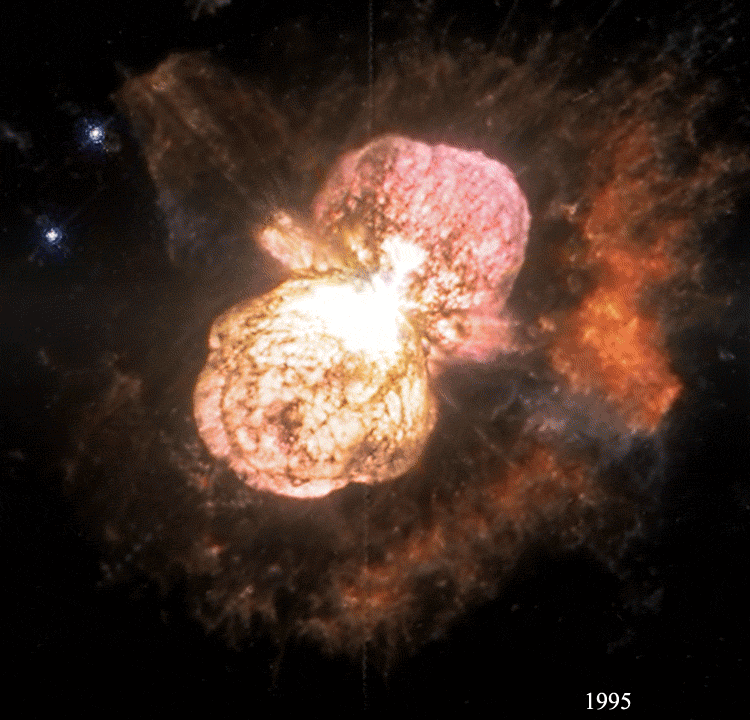
|
Credit & Copyright: First Light,
J. L. Dauvergne, P. Henarejos
Explanation:
How did the Eta Carinae star system create this unusual expanding nebula?
No one knows for sure.
About 170 years ago, the southern star system
Eta Carinae (Eta Car)
mysteriously became the second
brightest star system in the night sky.
Twenty years later, after ejecting more mass than our Sun, Eta Car unexpectedly faded.
Somehow, this outburst appears to have created the
Homunculus Nebula.
The three-frame video features images of the nebula taken by the
Hubble Space Telescope
in 1995, 2001, and 2008.
The Homonculus nebula's center is lit by light from a bright central star, while
the
surrounding regions are expanding lobes of gas laced with filaments of dark
dust.
Jets bisect the
lobes emanating from the central stars.
Expanding debris includes streaming
whiskers and
bow shocks caused by collisions with
previously existing material.
Eta Car still undergoes
unexpected outbursts,
and its high mass and volatility make it a candidate to explode in a
spectacular supernova
sometime in the next few million years.
|
January February March April May June July August September October November December |
| ||||||||||||||||||||||||||||||||||||||||||||||||
NASA Web Site Statements, Warnings, and Disclaimers
NASA Official: Jay Norris. Specific rights apply.
A service of: LHEA at NASA / GSFC
& Michigan Tech. U.
Based on Astronomy Picture
Of the Day
Publications with keywords: Eta Carinae
Publications with words: Eta Carinae
See also:
